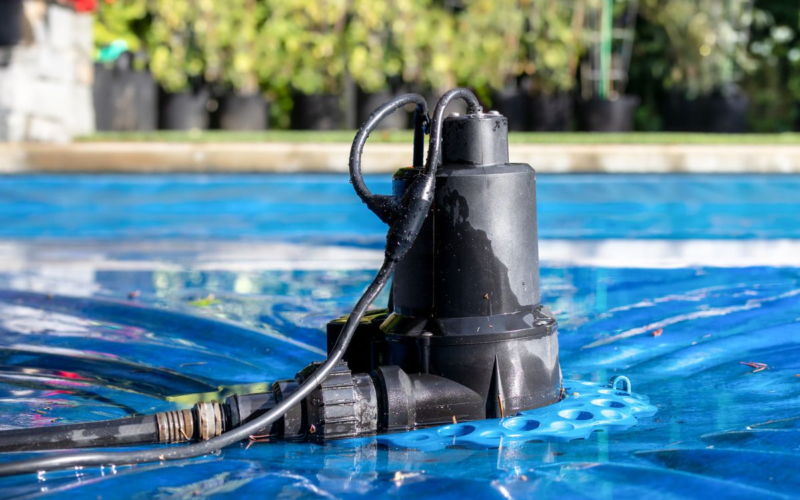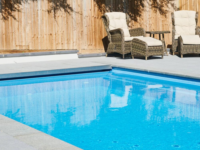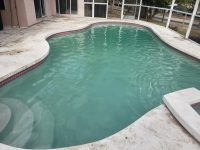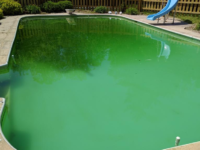Over time, every pool owner may need to determine the volume of the pool. The goals can be varied: whether to calculate the right proportions for chemicals, for some construction work, or just out of curiosity.
At first glance, it may seem that this is a very easy job that does not require effort. But if you want to get the clearest results, you need to have all the useful measurement tools and follow the formulas to measure each shape of the pool. Make measurements as fast and efficient as possible!
Top 3 tools for easy measurement:
You can use different things to measure the volume of the pool, depending on what is most convenient for you. We offer you the top 3 tools for measurement that are used in their work by both professional builders and ordinary people. They are very easy to understand and will make the whole process easier for you.
Tape measure

The tape measure is the most well-known and convenient thing for measuring large areas. We are sure that everyone at home has it and everyone has used it at least once. But to measure the length and depth of the pool, the length of a regular tape measure may not be enough. You can search the Internet for tape measures that are up to 100 feet (30.5 meters) long or even longer. This will greatly simplify the whole measurement.
Laser Measure

If you like to make your life easier and use all modern things, then this option will suit you best. This laser roulette is very easy to use, just point it at the object to which the distance you want to measure (in our case the walls or bottom of the pool) and it will display the result on the screen. But at the same time, its distance measurement is a bit shorter than in tape measure, from 2ft to 60ft (0.5m to 18m).
Again, this is not the cheapest purchase (100-300$), but it can be useful not only when measuring the volume of the pool, but also in other cases when you need to make quick measurements without much effort.
Height Measuring Stick

To measure the distance to the bottom, the most effective thing is the so-called height measuring stick. It is a professional tool that is often used by builders in the construction of houses or to measure the height of a machine or product.
The main advantage of this thing is that, unlike tape measure, it does not bend and is very solid in structure. Because it has only a few bending points, it can be firmly fixed and you can quickly measure the distance to the bottom of the pool.
How to measure how many gallons is the pool
Once you have all the necessary tools for measurement, you can start finding the volume of your pool. Below are the basic forms of pools and examples of solutions that will help you find their volume.
Square or rectangular pool

Consider the two most standard forms of pools, which are the easiest to measure, because they are all based on the laws of geometry, and therefore their volume can be measured by simple mathematical formulas.
Length (ft) x width (ft) x average depth (ft) x 7.5 = volume (gallons)
The length by width gives the surface area of the pool. Multiplying this by the depth, you get the volume in cubic feet.
If you want to find the volume of the pool in gallons, multiply the results by 7.5 because there are 7.5 gallons per cubic foot.
Example:
Suppose that the length of our pool is 30 ft, width 24 ft. Since the depth in the pool varies, from shallow to greater depth, we need to find the average depth, for example, the depth at the deepest point is 6 feet, and at the smallest — 4. Find their average value (6 + 4) / 2 = 5 ft.
Focusing on the formula, do the following:
30 ft x 24 ft x 5 ft = 3600 (cubic foot)
Next, we need to translate these numbers into gallons:
3600 ft x 7.5 = 27 000 (gallons)
Oval or round pool
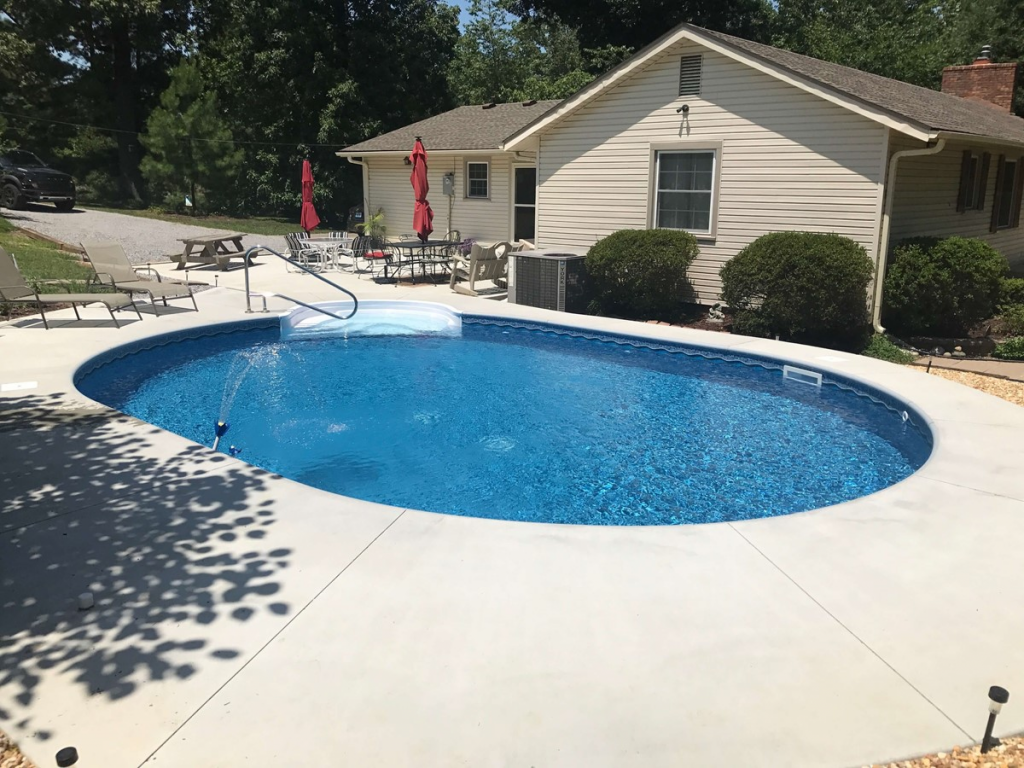
Round pool
Radius squared (ft) x average depth (ft) x 3.14 x 7.5 = volume (gallons)
The number 3.14 refers to pi, which is a mathematical constant. The radius is half the diameter. So you need to measure the distance at the widest part of the circle and divide it by 2 to find the radius. The square means that the number multiplies by itself, so multiply the radius by itself.
Example:
For example, if the diameter is 30 ft, we can half this value for a radius of 15 ft. Now, to find the radius squared, multiply 15 ft by itself to get 225 square feet. The average depth is determined according to the same principle as in the previous example with a square pool. Let’s consider it’s 5 ft.
Also, it is worth remembering that in one cubic foot 7.5 gallons, so do not forget to multiply the expression by this number. Then you can use the formula:
225 ft x 5 ft x 3.14 x 7.5 = 26 494 gallons
Oval pool
(Length (ft) x width (ft) x 3.14 / 4) x average depth (ft) x 7.5 = volume (gallons)
The formula seems quite complicated, but it is only because of the oval shape of the pool, which is more complex than a square or round. You only need to make a few measurements.
Measure the greatest length and the greatest width perpendicular to it. Multiply the length and width by pi (3.14), divide the result by 4, and then multiply the result by the average depth. Take the result and multiply by 7.5 to get the volume of your pool in gallons.
Example:
Suppose that the length of our pool is 20 ft, the width is 14 ft, and the average depth — 5 ft (find it according to the same principle as in the previous example). Perform this action:
(20 ft x 14 ft x 3.14 / 4) x 5 ft x 7.5 = 8243 gallons
Kidney-shaped or irregularly shaped pool

To find the volume of irregularly shaped pools, think of a pool as a group of smaller regular shapes. Measure these areas and refer to the calculations above to find the area of each square, rectangle, or circle. Add volumes to determine total volume.
Do not think that measuring such a pool may be too complicated or completely inaccurate. If you follow all the measurement rules described above, you can easily measure the volume of the irregular-shaped pool. So you can get the most accurate result!
Summary
In general, measuring the pool sometimes is time-consuming and difficult. We have described above all possible forms and solutions, how to find their volume in gallons. The formulas proposed above are very clear and time-tested and have repeatedly helped everyone. Use and take your measurements quickly and efficiently!
FAQ
❓ Do I need to call a specialist to measure the volume of the pool?
No, you can measure the volume of the pool yourself. The main thing is to have all the necessary devices for this (tape measure for example) and follow the formulas so that the calculations are correct.
🛠 Do I need special instruments to measure the volume of the pool?
You can use all the materials at hand to measure. Tape measure, laser measure, and height measuring stick are often the most suitable for this.
💡 Does the amount of chlorine needed for a pool depend on its volume?
Yes, if you want to use any chemicals for your pool, you need to know its volume. For each chemical, there are clear doses designed for different volumes of pools. Failure to do so may result in allergies, skin irritation, or major body problems (breathing difficulties).
